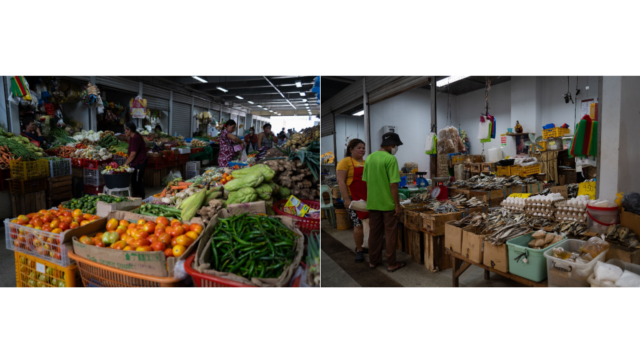
MANILA – UNICEF lauds Pasig City and Cebu for demonstrating reforms that help children and their families make healthier food choices. Early this year, Pasig City passed an ordinance restricting junk food marketing around schools and other spaces where children gather. The measure also bans sponsorships and promotions from companies selling products that fail to meet nutrition standards for children. In Cebu, municipal markets are designed to make nutritious options like rice, vegetables, and fresh foods more visible and affordable. Vendors occupy clearly marked areas, prices are posted, and healthier options are placed front and center to help families make better choices.
UNICEF hopes these efforts encourage other governments to take simple but powerful steps can shift the way food is chosen and consumed.
According to UNICEF’s Child Nutrition Report 2025, obesity has now overtaken underweight as the most common form of malnutrition among school-aged children and adolescents globally. In the Philippines, children are increasingly exposed to ultra-processed, high-sugar foods from their earliest years. One in ten children aged 6 to 23 months are already overweight, a trend driven by a food system that makes the least nutritious options the most accessible.
A national review of baby food, cereals, and toddler snacks revealed that many products marketed as “nutritious” far exceed recommended sugar and salt levels. Nearly all food ads children see online promote items high in sugar, salt, or saturated fats, which means a child’s diet is shaped long before they can learn to read.
Marketing makes unhealthy food even harder to avoid. A WHO study found that nearly 99 per cent of food ads children see promote unhealthy products, often pushed through celebrities, influencers, or cartoon characters. Children in the Philippines can encounter dozens of these promotions every day, from TV to online to billboards near schools.
UNICEF works with at different levels of government to address these growing concerns. At the national level, UNICEF is working with the Department of Health and the Food and Drug Administration to strengthen standards for products sold to young children, including labeling and marketing regulations. Through the Consortium for Improving Complementary Foods in Southeast Asia, UNICEF is also supporting regional efforts to improve the quality and safety of commercially processed complementary foods. These reforms address a major gap in policy: unlike breastmilk substitutes, which are regulated under the Philippine Milk Code, complementary foods for older infants and toddlers still lack clear standards.
Children themselves are calling for change. In UNICEF’s Fix My Food dialogues across 18 countries, young people described how affordability and availability limit their food choices, and how aggressive marketing pushes them toward unhealthy options. They urged leaders to regulate harmful marketing, ensure healthier foods are affordable, and include children’s voices in shaping policies.
“Every child has the right to nutritious food. But they are denied this right in an environment where unhealthy products are aggressively marketed and are more visible than healthy food choices,” said Alice Nkoroi, UNICEF Philippines Nutrition Manager. “The evidence is overwhelming, the solutions are known, but we must act bolder and faster. If current trends continue, more children will grow up with obesity and diet-related diseases. Reforms in Pasig and Cebu show that we can reverse this trend. Now we need national reforms that put children’s health first and hold food companies accountable.”
The food and beverage industry has enormous influence on children’s diets, yet 80 per cent of companies still have no policies to restrict unhealthy food marketing to children. UNICEF calls on food companies to put children’s health before profit, and on national and local leaders to pass reforms that restrict food marketing, strengthen nutrition labeling, and create food environments where the healthy choice becomes the easiest one.
For more on how food marketing, labelling, and policy shape children’s diets in the Philippines, please visit www.unicef.ph.




